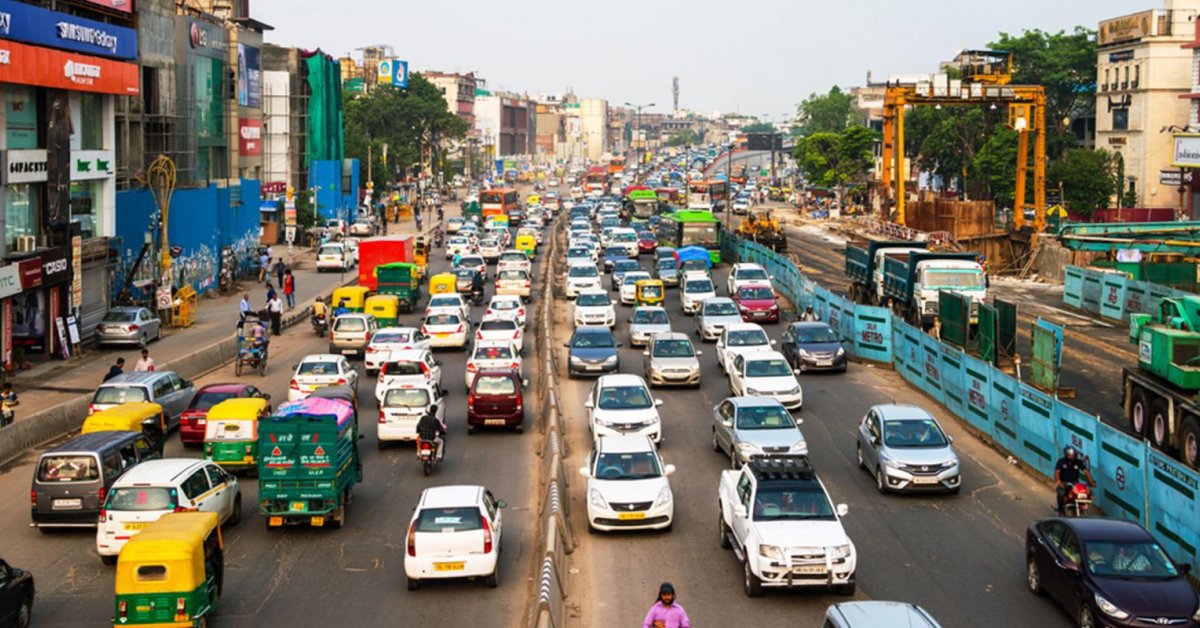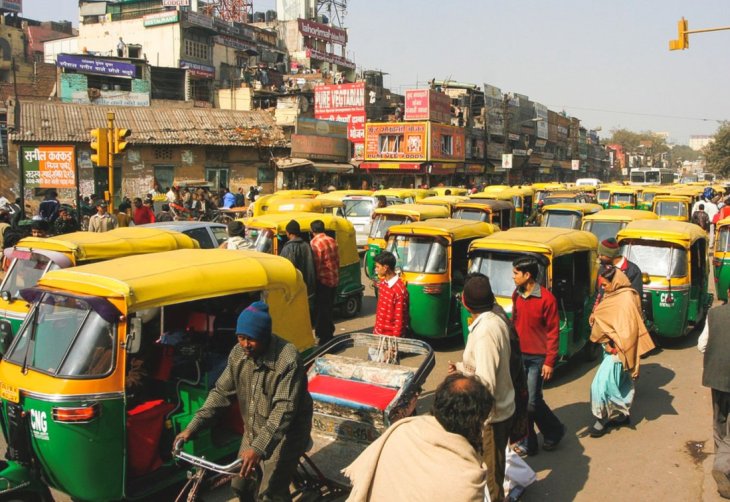How Google Maps Can Accurately Predict Traffic Conditions In India
Aadhya Khatri - Dec 02, 2019

Every time anyone uses Google Maps, the app will ask for permission to access data on their current locations to track millions of users in the country
- Google Offers Voluntary Buyouts to US Employees Amid AI Push
- Google SynthID: Everything You Need to Know About AI Content Detection
- NotebookLM Mobile App: Enterprise AI Capabilities Now Available on iOS and Android
Google Maps seems to have the superpower to predict traffic conditions in real-time with a high level of accuracy. There is no mystery here, though. Google is able to do this is because it tracks you and millions of other commuters.
Every time you try to use Google Maps, the app will ask for permission to access data on your current locations. The information will then be sent to its server. So when you are commuting, it will be able to guess if you are stuck in the traffic or moving. Google has access to similar data of millions of people around the world, including those who are on the same road as you. The next step is to predict heavy traffic based on the number of vehicles and their speed in the area.

The company also has traffic data of the past years and the conditions of roads, enabling it to make an accurate prediction of when traffic will peak.
Overall, what makes Google so good with its predictions is that it relies on users’ data. So the more people using its app, the more information it will be able to harvest.
However, not everyone is thrilled with the idea of being tracked. If you want to stop the app from gathering data on your locations, switch off the location services. But if a larger number of people opt out, the whole idea of having an app that can tell you exactly the future traffic condition will be rendered useless. Since the location data stored on Google’s servers is not tied with any identity, you can be sure that no one can use the information to track you.
Uber has just made public its data website to aid users and scientists in building better infrastructure in around 450 cities all over the world.
Featured Stories

Mobile - Feb 16, 2026
Xiaomi Launches Affordable Tracker to Compete with Apple's AirTag

ICT News - Feb 15, 2026
X Platform Poised to Introduce In-App Crypto and Stock Trading Soon

ICT News - Feb 13, 2026
Elon Musk Pivots: SpaceX Prioritizes Lunar Metropolis Over Martian Colony

ICT News - Feb 10, 2026
Discord's Teen Safety Sham: Why This Data Leak Magnet Isn't Worth Your Trust...

ICT News - Feb 09, 2026
PS6 Rumors: Game-Changing Specs Poised to Transform Console Play

ICT News - Feb 08, 2026
Is Elon Musk on the Path to Becoming the World's First Trillionaire?

ICT News - Feb 07, 2026
NVIDIA's Gaming GPU Drought: No New Releases in 2026 as AI Takes Priority

ICT News - Feb 06, 2026
Elon Musk Clarifies: No Starlink Phone in Development at SpaceX

ICT News - Feb 03, 2026
Elon Musk's SpaceX Acquires xAI in Landmark $1.25 Trillion Merger

ICT News - Feb 02, 2026
Google's Project Genie: Premium Subscribers Unlock Interactive AI-Generated Realms
Read more

Mobile- Feb 16, 2026
Xiaomi Launches Affordable Tracker to Compete with Apple's AirTag
For users tired of ecosystem lock-in or high prices, the Xiaomi Tag represents a compelling, no-frills option that delivers core functionality at a fraction of the cost.

Mobile- Feb 14, 2026
Android 17 Beta 1 Now Available for Pixel Devices
While Android 17 Beta 1 doesn't introduce flashy consumer-facing changes yet, it lays the groundwork for a more robust and flexible platform.

ICT News- Feb 15, 2026
X Platform Poised to Introduce In-App Crypto and Stock Trading Soon
X has been laying the groundwork for this expansion.
Comments
Sort by Newest | Popular